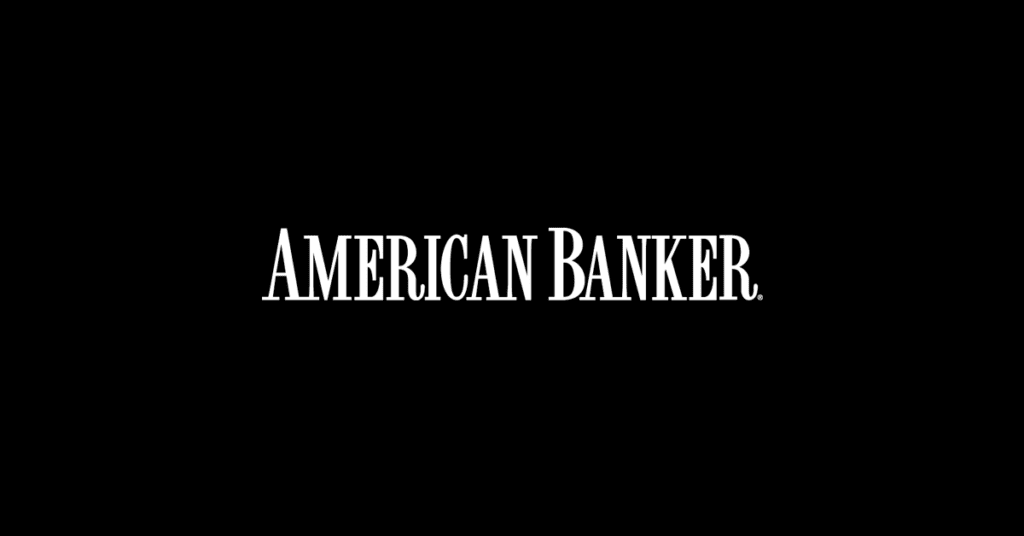05 May American Banker: CORONAVIRUS DEALS BLOW TO INTERCHANGE INCOME
By Jim Dobbs – Reporter, American Banker
Stay-at-home orders and travel restrictions aimed at slowing the spread of coronavirus are disrupting consumer spending and crimping an important source of fee income for banks.
At issue: Credit and debit card use has declined, causing a substantial decrease in interchange fees.
Banks of all sizes are riding out an extended period of stagnant spending, as consumers limit purchases to essentials such as food. Bankers said during earnings calls that the shock, which began in late March, will likely last as long as the economy remains on partial lockdown.
Americans are traveling less, and scrapping plans they had made earlier in the year, Jim Ryan, chairman and CEO of the $21 billion-asset Old National Bancorp in Evansville, Ind., said in an interview.
Though “there will be pent-up demand” among consumers, “there will be some” lost interchange revenue, Ryan added. “I usually get a haircut every three weeks. I won’t make up for the one or two haircuts that I missed.”
It is unclear how much interchange revenue banks have lost so far because most do not break that information out in their quarterly earnings reports. And the biggest hits will likely take place in the current quarter.
Bank of America in Charlotte, N.C., disclosed in its first-quarter 10-Q with the Securities and Exchange Commission on Friday that interchange income, taking into account rewards and partner payments, fell by 12% from a year earlier, to $792 million.
Stay-at-home orders led to “large declines in debit and credit card spending” for travel and entertainment, Chairman and CEO Brian Moynihan said during the $2.6 trillion-asset BofA’s earnings call. Year-over-year spending in those areas fell “to negative territory in April.”
Andrew Cecere, chairman and CEO of U.S. Bancorp in Minneapolis, said during the $543 billion-asset company’s earnings call that the payments business, broadly, faces big challenges “in line with the drop in global economic activity.”
Lost interchange revenue could deliver a big aggregate hit for banks.
Global payments revenue totaled $2.3 trillion in 2018, with more than a third of that coming from interchange and other fees, according to the most recent data from the consulting firm Sievewright & Associates.
Total payments revenue, which had been grown by about 8% annually in the last five years, could decline by 8% to 10% this year, said Mark Sievewright, CEO of Sievewright & Associates.
As much as 80% of that hit could be tied to interchange fees.
“When a large portion of the places we shop at or do business with [are] closed, it’s very challenging to make up all of that lost revenue,” Sievewright said.
The hit will probably be more severe for some institutions than others.
The nation’s seven biggest credit card issuers — JPMorgan Chase, American Express, Citigroup, BofA, Capital One Financial, U.S. Bancorp and Discover Financial Services — control roughly three-fourths of the market, Sievewright said.
Small and midsize banks, and credit unions, also are bracing for weaker interchange revenue this quarter and likely next.
Within the service charge category, “you’ll see the impact of interchange and slower economic activity there, as people are out doing less things and drawing on their accounts less often,” Darren King, chief financial officer of M&T Bank in Buffalo, N.Y., said during the $125 billion-asset company’s earnings call.
While their share of the overall pie is smaller, banks with less than $10 billion in assets that generate interchange fees often capture more of it because they are exempt from caps imposed by the Durbin amendment. It is a key source of revenue for those banks at a time when net interest income is hard to come by.
Mercantile Bank in Grand Rapids, Mich., will feel a pinch from lost interchange income, Charles Christmas, the $3.7 billion-asset company ‘s CFO, said during a recent earnings call. He said card use had fallen in recent weeks and will have “a substantial impact” on fee revenue.
Federal stimulus programs could ease some pain. Debit card spending was up almost 5% year over year for the week of April 13, after Americans started receiving stimulus checks, according to the payments credit union service organization PSCU.
But government assistance programs are unlikely to stave off declines in interchange fees.
Sound Credit Union in Tacoma, Wash., said it experienced a 15% to 20% drop in member spending after restrictions were ordered in its home state. Spending briefly rebounded for a few days when clients received relief payments in April and immediately bought necessities.
“But now we’re starting to see spending kind of come back down,” said Troy Garry, the $1.9 billion-asset credit union’s CFO.
Sound, which normally earns about $10.5 million a year from interchange fees, believes that figure will drop by about 15% for the year, Garry said in an interview. Even as businesses start reopening, consumer spending patterns could be altered for the foreseeable future.
The eventual fallout depends on “what percentage of … workers will get back to work,” Garry said, adding that spending will still be short of initial expectations even if unemployment falls.
“I think people could change their behaviors,” Garry said. “Will people even go out and eat? Or did they enjoy eating at home and saving the money?”
Article source: americanbanker.com

